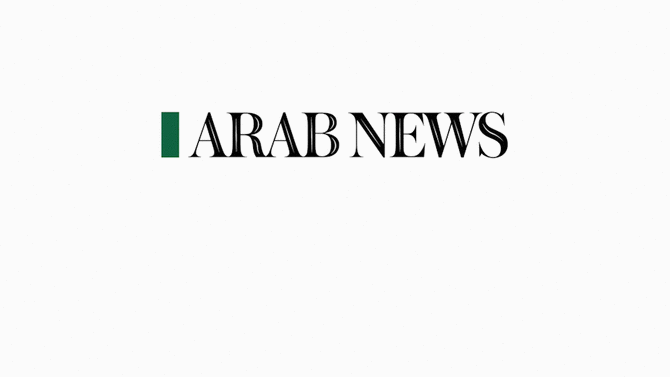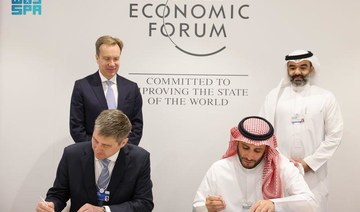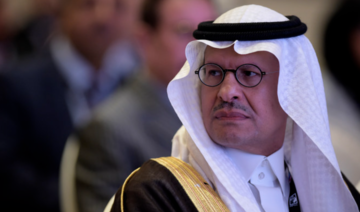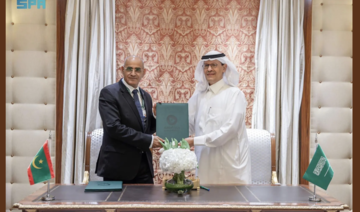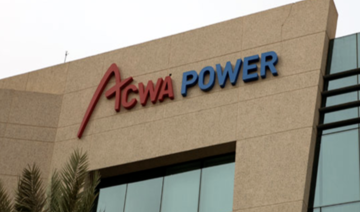RIYADH: Saudi Arabia strongly condemned and denunced the terrorist attack that targeted Hamid Karzai International Airport in the Afghan capital, Kabul, which led to a number of deaths and injuries.
Developing...
Saudi Arabia condemns attack on Kabul airport
https://arab.news/8cs4w
Amazon Purr-rime: Cat accidentally shipped to online retailer

- Galena was found safe by a warehouse worker at an Amazon center after vanishing from her home in Utah
LOS ANGELES: A curious cat that sneaked into an open box was shipped across the United States to an Amazon warehouse after its unknowing owners sealed it inside.
Carrie Clark’s pet, Galena, vanished from her Utah home on April 10, sparking a furious search that involved plastering “missing” posters around the neighborhood.
But a week later, a vet hundreds of miles (kilometers) away in Los Angeles got in touch to say the cat had been discovered in a box — alongside several pairs of boots — by a warehouse worker at an Amazon center.
“I ran to tell my husband that Galena was found and we broke down upon realizing that she must have jumped into an oversized box that we shipped out the previous Wednesday,” Clark told KSL TV in Salt Lake City.
“The box was a ‘try before you buy,’ and filled with steel-toed work boots.”
Clark and her husband jetted to Los Angeles, where they discovered Amazon employee Brandy Hunter had rescued Galena — a little hungry and thirsty after six days in a cardboard box, but otherwise unharmed.
“I could tell she belonged to someone by the way she was behaving,” said Hunter, according to Amazon.
“I took her home that night and went to the vet the next day to have her checked for a microchip, and the rest is history.”
Sudan to pursue nuclear energy, exploit gold resources: Energy minister
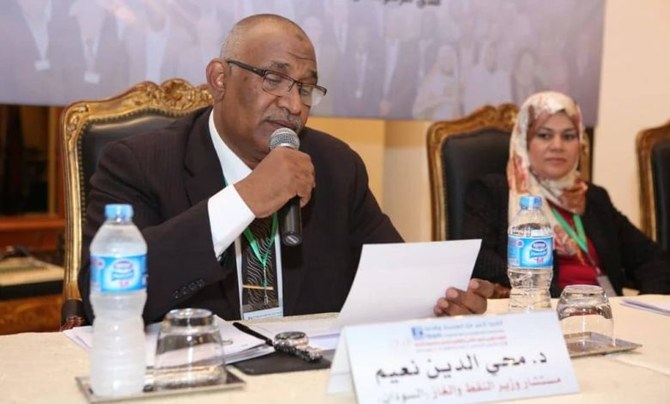
- Energy, mining ministries combined, says official at WEF meeting
- Nuclear power will ‘accelerate’ industrial developmental progress
RIYADH: In a bid to boost the country’s development, Sudan has consolidated its energy and mining ministries, and is pursuing nuclear power as a source of electricity, a senior official said at the World Economic Forum here on Monday.
Speaking to Arab News, Minister of Energy and Petroleum Moheiddin Naeem Mohamed Saeed said the merging of the ministries is aimed at capitalizing on the nation’s gold resources. Pursuing nuclear energy would boost the war-torn country’s development, he added.
“Sudan’s significant gold production will be leveraged to drive development in other sectors,” the minister said.
Meanwhile, Saeed said that he found the discussions on nuclear energy during the WEF event beneficial, adding that his country has begun the process of developing its nuclear-power sector.
“Having completed the initial two steps, it is now high time to seriously consider nuclear energy, given it is safe. This action will accelerate Sudan’s industrial and developmental progress, potentially spearheading reforms in the energy sector, which is a key indicator of a country’s level of development,” Saeed said.
He said that discussions around energy were critical for all nations. “Energy is no longer a private matter; it is a concern that resonates worldwide. Access to energy is a fundamental right for people everywhere. With the evolving quality of life, energy has become indispensable. From household appliances to industrial machinery, our modern way of life relies heavily on energy,” he said.
Saeed added that the WEF special meeting provides a platform for participants to discuss different energy sources and strategies for investing in them optimally, while keeping costs as low as possible, and developing industry standards.
“This forum seeks to unite the global regulations and provide safe and available energy,” he said.
Saeed said Sudan was developing relations with other nations with regard to energy provision. “We have a power interconnection with Ethiopia, and we have a power interconnection with Egypt; they are our neighbors. We have a big goal to achieve in Africa, which is to pursue this interconnection. So, African countries exchange energy,” he said.
He emphasized that Africa, known for its economic challenges, requires collaborative efforts among its nations to address energy issues effectively. “Energy has become an indicator of whether a country is advanced or not, as I previously said. They strive to integrate electricity and energy in general.”
Saeed said that as an oil-producing country, Sudan had undertaken projects with China and Malaysia. “In early 2000, our oil production reached 500,000 bpd (barrels per day), after the country split into two with the establishment of South Sudan, where most of the oil projects were located.
“Our big challenge now is to cooperate with oil old players or the new ones everywhere, as we have no political issues with any country, and this is business. We have a substantial oil reserve in the north,” he said.
He said Sudan has only exploited 20 percent of its known oil reserves for energy, and the government was striving to maximize production due to high demand.
“We currently meet 40 percent of our energy requirements. Additionally, we have initiatives in solar, thermal and wind energy to generate electricity. Moreover, our river systems, supported by numerous dams, contribute to half of Sudan’s power supply, and we are making significant progress in this area.”
On gas, he said Sudan has potential fields in the Red Sea, and are transitioning electricity stations to utilize more of this source.
Simi, Haze Khadra thank Saudi fans after beauty masterclass

DUBAI: US Palestinian beauty moguls Simi and Haze Khadra concluded their beauty masterclass sessions in Riyadh this week, before flying to Dubai.
The masterclass sessions celebrate the Middle East launch of their eponymous label SimiHaze Beauty, with their products now available to purchase at Sephora stores in the region.
“Best day with all the amazing people in Riyadh. Thank you so much for all the love and so happy you all love everything,” the sisters posted on Instagram Stories.
The twins launched their US-born cosmetics brand in 2021 with a range of stick-on makeup designs that can be placed on the face for a bold beauty look achievable within seconds. The sticker book features an array of edgy designs inspired by their favorite DJ looks from the past, such as chrome wings, neon negative space eyeliner and holographic cat-eyes.
SimiHaze Beauty has expanded to include a range of products, including lipsticks, bronzing powders, a lifting mascara and more.
Germany failing to protect Muslims from hate: Human Rights Watch
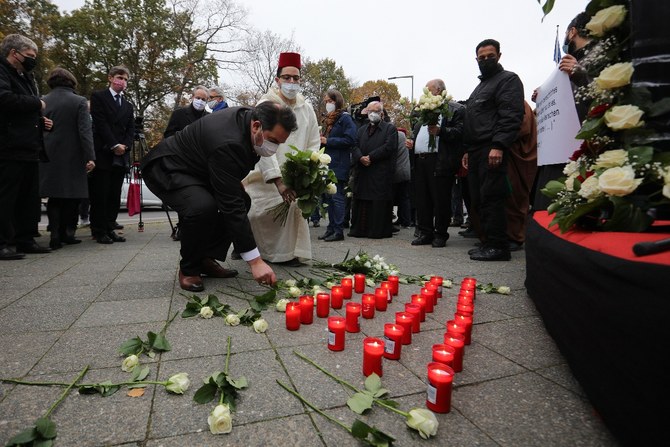
- Government ‘lacks understanding’ of racism targeting Muslim communities
- 2023 marked ‘frighteningly new high’ for hate incidents: German NGO chief
LONDON:Germany is failing to protect Muslims from growing racism amid a “lack of understanding” about the issue, Human Rights Watch has warned.
The country has yet to implement a working definition of anti-Muslim racism and frequently fails to record data on race-hate incidents, the organization said on Tuesday.
A key failing of the German government concerns its “lack of understanding that Muslims experience racism and not simply faith-based hostility,” said Almaz Teffera, a HRW researcher on racism in Europe.
“Without a clear understanding of anti-Muslim hate and discrimination in Germany, and strong data on incidents and community outreach, a response by the German authorities will be ineffective.”
Germany recorded 610 “anti-Islamic” crimes in 2022, but from the start of 2023 to September that year, the number had climbed to 686.
There are fears that the figure has further surged since the outbreak of the Gaza conflict last October.
Germany’s Interior Ministry told HRW that it could not provide data on anti-Muslim crimes from October 2023 to the year-end.
However, civil society groups in the country recorded a spike in reported incidents, leading Germany’s federal commissioner for anti-racism, Reem Alabali-Radovan, to join an EU-wide expression of concern about the rise in hate.
The Alliance Against Islamophobia and Anti-Muslim Hate, a German NGO network, documented “an average of three anti-Muslim incidents a day” last November.
The network’s chief, Rima Hanano, told HRW that “2023 marked a frighteningly new high for anti-Muslim incidents.”
Though the network collects its own internal data on the frequency of hate incidents, the German government “has yet to develop an infrastructure for countrywide monitoring and data collection,” HRW said.
The government has also classified hate incidents against Muslims as “anti-Islamic” since 2017, removing nuances surrounding the ethnic identities of victims, HRW added.
A three-year study commissioned by the government and published last year recommended that authorities “no longer dissociate anti-Muslim hate from racism,” but instead “recognize their connection.”
However, the Interior Ministry has failed to carry out the report’s recommendations, HRW said, adding: “Any focus on anti-Muslim hate and discrimination that fails to include racism or acknowledge the intersectional nature of such hostility will be unable to capture the full picture or inform effective policy responses.”
Muslim communities in Germany are a “group with a diversity of ethnicities” rather than a “monolithic religious group,” said Teffera.
“Germany should invest in protecting Muslims and all other minority communities in Germany because it is an investment in protecting all of German society.”
Saudi minister stresses energy security importance amid climate concerns
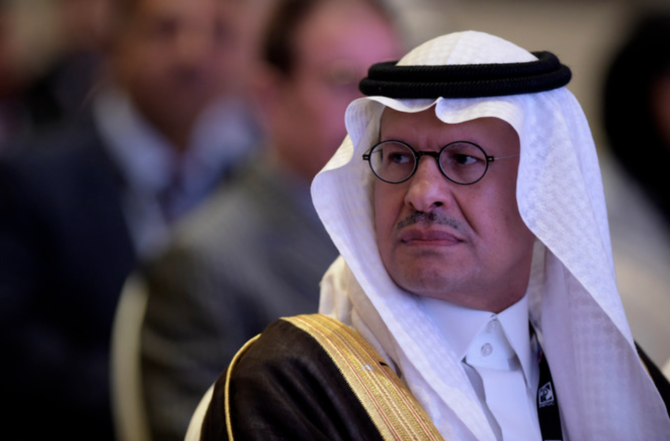
RIYADH: Energy security does not need to be sacrificed to deal with climate concerns, one of Saudi Arabia’s top ministers has insisted.
The Kingdom’s Energy Minister Prince Abdulaziz bin Salman flagged made the comments at a dialogue session titled “Energy Security, Future of Energy, and Sustainable Development” during the 2024 IsDB Group Annual Meetings in Riyadh.
His warning come as climate change discussions now include a focus on innovative solutions such as renewables and advanced technologies while ensuring energy security and economic growth.
Prince Abdulaziz stated: “We believe in the reality of the climate crisis, but we support dealing with it according to the priorities of each country.”
He added: “Our issue is not recognizing the existence of the problem of climate change, but rather how to deal with it in a fair and direct manner, taking into account the differences in the national circumstances of countries.”
The minister stressed the importance of collaboration and collective action, noting Saudi Arabia’s proactive engagement on global warming.
“The Kingdom has the second lowest intensity of carbon dioxide and methane emissions in the world, and countries that occupy lagging positions must follow our approach,” he emphasized, urging nations to unite and work together toward effective solutions.
“The discussion on the issue of climate change must be realistic and logical to enable all parties to cooperate in confronting this global issue,” the minister added.
The energy minister joined a growing chorus of high-profile figures discussing the trade-offs between energy security and climate concerns.
In March, President and CEO of Aramco Amin Nasser called for a new approach to the energy transition that incorporates oil and gas, saying the current strategy “is visibly failing on most fronts.”
Speaking at the same meeting as Prince Abdulaziz in Riyadh, Muhammad Al-Jasser, president of the Islamic Development Bank, highlighted the institution’s commitment to green projects through innovative financing mechanisms.
“Anytime you have a green project, you can issue sukuk against it. Once you have those green sukuks, you can create green assets against it and then you have a virtual cycle triggered into the process and we’re already there,” he explained.
Al-Jasser emphasized the bank’s proactive approach to catalyzing change rather than waiting for it.
“This year is going to be a bumper year for us, we’re going to be issuing $6 billion of sukuk; some of it will be green. This is our way of helping and not waiting too long to bring about that change,” he said.
Addressing the financing challenges associated with the energy transition, he emphasized the progress made by IsDB in increasing funding for sustainable projects.
“We will provide financing within our abilities and we do it with also all of the other Arab lending institutions,” he explained.
He continued: “There’s the Arab Coordination Group, we compare notes and we go out and we finance some of these projects like the hydro dams that we have financed together and that helps a lot with the transition and with the creation of sufficient energy to fuel these economies.”
However, he acknowledged the financial constraints and emphasized that the transition must be realistic and inclusive, stating: “We will never have enough money, and therefore the transition has to take that into account.”



